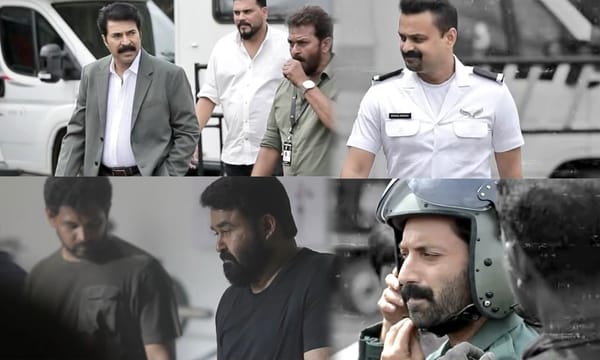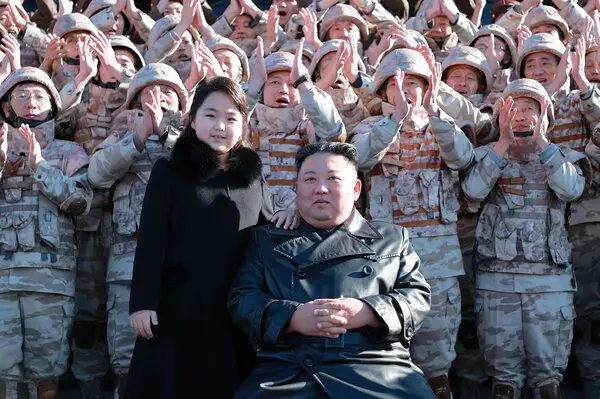Completely With Theatre: Alvin Tan
“There was no way we could use the strength of our history as a selling point, because we had almost no history to speak of. Additionally, we were a melting pot of different cultures. Most other directors saw this as a weakness. They thought that this lack of a central identity was a great problem.

“There was no way we could use the strength of our history as a selling point, because we had almost no history to speak of. Additionally, we were a melting pot of different cultures. Most other directors saw this as a weakness. They thought that this lack of a central identity was a great problem. We thought it could be a strength.” (Alvin Tan in an interview, We are Singapore: Extraordinary Singaporeans).
This strength of multiculturalism of Singapore has been artistically exploited by this theatre connoisseur who is proving to be a legend in the theatre scene of Singapore - Alvin Tan, the recipient of this year’s Cultural Medallion.
The Cultural Medallion is Singapore’s highest accolade for artists. It recognises and celebrates individuals who have made distinctive and significant contributions in shaping Singapore’s cultural landscape. This award is conferred by the President of Singapore and administered by the National Arts Council. Recipients of the award receive a grant of S$80,000 to develop their expertise.
The Necessary Stage
Alvin’s love for theatre started when he was in the second year at the National University of Singapore. Following successful theatrical pursuits at the University and a nod from his mother to follow his heart, he initiated a Theatre Club and in 1987 the non-profit charity organization, The Necessary Stage (TNS) was born. In 1989 he was joined by Haresh Sharma, playwright, who is of outstanding and international repute today. Together, Alvin Tan, the founder and artistic director, and Haresh Sharma, the playwright, have churned out 100 over original plays. The plays have been presented locally as well as overseas to international and critical acclaim, winning awards and accolades.
The plays have been huge hits with local public as people could relate instantly to happenings around them, as it is about them. Abounding in the local vernacular, ‘Singlish’ and with regular character archetypes; the plays effectively highlighted social causes, conflict issues, proved as eye openers, hitting at the hard truths.
 |
| Scene from Gemuk Girls |
To cite a few social themes tackled; Fundamentally Happy, 2006 (paedophilia) Gemuk Girls, 2009 (political detention), Off Centre 1993 and 2007 (mental health) Poor Thing 2014 (road rage and cyber bullying), Gitanjali 2014 (interculturalism and globalisation inspired by poems of Rabindranath Tagore).
TNS has done collaborative ventures with Malaysia, Japan, Philippines, Thailand, Glasgow and others. Separation 40, with Malaysia; Mobile with Japan. Past Caring with Australia; Sofaman with Russia among others. TNS has performed widely overseas: Berlin, Birmingham, Busan, Cairo, Dublin, Glasgow, Hong Kong, Khabarovsk, Kuala Lumpur, London, Macau, Melbourne, New Delhi, Rijeka, Seoul, Sibiu, Taipei and Tokyo.
TNS has several publications to its credit featuring essays on Singapore Theatre and various aspects of theatre-making. The play Off Centre has been selected by the Ministry of Education (Singapore) as part of the GCE 'O' and 'N' level literature syllabus from 2006 onwards.
TNS has also worked with various non-governmental organisations, statutory boards and government ministries to present works dealing with specific issues to the public. To cite a few: TNS was commissioned by the Ministry of Community Development, Youth and Sports to present a skit on child abuse entitled Sweet Dreams, targeted at primary school students. Health Promotion Board: Play Safe (on safe sex) as well as a scaled down version of Don't Forget to Remember Me on Alzeimer’s Disease in various community spaces.
TNS spin offs: The Theatre for Youth Branch was set up in 1992 which works closely with the young people and schools. And April 2008, TNS began the Theatre For Seniors (TFS), geared towards training the participants in various aspects of theatre-making and arts administration and now a spin-off group from TFS, Theatre for Seniors Interest Group is exploring ways to continue their training and engagement with the public. The Triangle Project was started in 1992 with the aim of providing opportunities for the less privileged to watch theatre.
And now about the soul of TNS….
Alvin Tan was awarded a Fulbright Scholarship in 1997. The following year, he was conferred the Young Artist Award by the National Arts Council. He has represented Singapore in numerous conferences and workshops around the world. He was invited to participate in the World Culture Forum Alliance in São Paulo and the Conference of Asian Foundations and Organisations in Barcelona, as well as 2005's World Culture Forum in Jordan. He has served as a member of the curatorial panel for TransLab, an initiative created by the Australian Council for the Arts to promote intercultural theatre and performance. In 2010, he was conferred the Chevalier des Arts et des Lettres by the French Ministry of Culture, in recognition of his significant contribution to the arts.
Alvin has also been actively involved in civil society and public initiatives, amongst which include Bird People in Tanglin Halt, an intradisciplinary project on the dilemmas of urban heritage and biodiversity, for which he is the Artistic Director of the theatre component. In 2012, Alvin was also commissioned by the National Library Board as Artistic Director of a time-travelling exhibition on the life and works of Singapore poet Edwin Thumboo.
Alvin sits on the Singapore50 Committee, established to coordinate nationwide celebrations for Singapore's 50th birthday in 2015. He is also a Board Member of the National Arts Council, Singapore. Most recently in 2014, he was invited to be on the Syllabus Development Committee for the Arts Education branch of Ministry of Education, to design a drama syllabus at 'O' level for implementation in 2017 in schools.
He was also the co-artistic director of the annual M1 Singapore Fringe Festival for the last ten years. The festival is still administered by TNS.
Catching up with Alvin, with a few queries from the author.
What influenced you (any works of people: literature / acting / plays) to take up theatre?
English literature influenced me. Chinua Achebe, Samuel Beckett, E.M. Forster, Henrik Ibsen, DH Lawrence, Virginia Woolf were some writers that influenced me.
Inspired by how sensibilities and world views were captured and how the human condition was played out, I became motivated to explore how to capture our voice on stage.
Any favourites for you among your productions?
Gemuk Girls. The maturity of Haresh Sharma's writing and the quality of the performers and our multimedia and set collaborators were all at a all time high. There was political, philosophical, emotional and visceral elements in the work that I am very proud of. It remains till today, when I pick up the script to read.
The other play is Off Centre because of the impact of the story, the adverse effects of pursuing the Singapore dream as compassion erodes. The Singapore voice. And the evolution of The Necessary Stage methodology.
What are the common challenges you face while putting up productions?
Scheduling. It is getting very tough to do so as performers are taking on more than a job at the time these days. Theatre rental is expensive so we cannot afford to spend more time in the space in which we will be performing. This is tough because we find ourselves still composing after transferring the work from the rehearsal space to the performing venue.
Any fond memories / anecdotes in your Theatre career to share?
Working with the Japanese practitioners for Mobile 2: Flat Cities. They were expecting the director to have the vision of the whole play worked out from the start of the rehearsal process, as how they do with Japanese director because of the hierarchical way they work. Whereas I was working more collaboratively and relied on their input, and also spar with their ideas. It took some time for them to warm up to this style of working. They had some fabulous ideas which were incorporated into the composition of the work. So one day I asked them if they liked how I incorporated some of their ideas. And they did. So I told them that if I had fully envisioned the scene and shared with them how I wanted the scenes to look like before each rehearsal (adhering to their request), then all their creative input wouldn't find themselves into the work. They then understood how I work and from then on TNS collaborative style became the style for the project.
 |
| Padma Sagaram (in wheelchair) as Savitri in Gitanjali |
For Theatre For Seniors' rehearsal, we would always have food to look forward to during break time as Padma Sagaram (senior artiste) would always cook about 3 to 4 dishes and feed cast and crew all the time. It is always a joy, and something to look forward to after working hard in the rehearsal room.
Of the collaboration you have done with other countries, which was most satisfying and which was most challenging?
At the moment it's Mobile 2: Flat Cities, our collaboration with Japanese collaborators. They were open and diligent as we approached the process of creating the work. It was very challenging work and although we spent phase 1 generating material and phase 2 on skype to revise the script, we only had 3 weeks of working every single day to put the work on its feet. We had to overcome cultural differences in terms of our respective rehearsal styles, let alone the challenges of putting together an original work that has not been staged before, and we did it!
Making art your profession has proved self-fulfilling for you. Would you recommend the path for others too?
No. In fact I would discourage people from coming on board unless they were very very sure what they were in for. It's not masak-masak.
What is next on the anvil?
The Orange Playground. It's a brand new incubation platform focussing on play; challenging our very own methodology, a kind of research and development without the pressure of any production as an outcome. Being a mature theatre company (27 years old), we need to rejuvenate our approaches to our theatre practice. So with its first edition, we have 5 Laboratory projects which are works-in-progress and will be presented in March/April next year.




